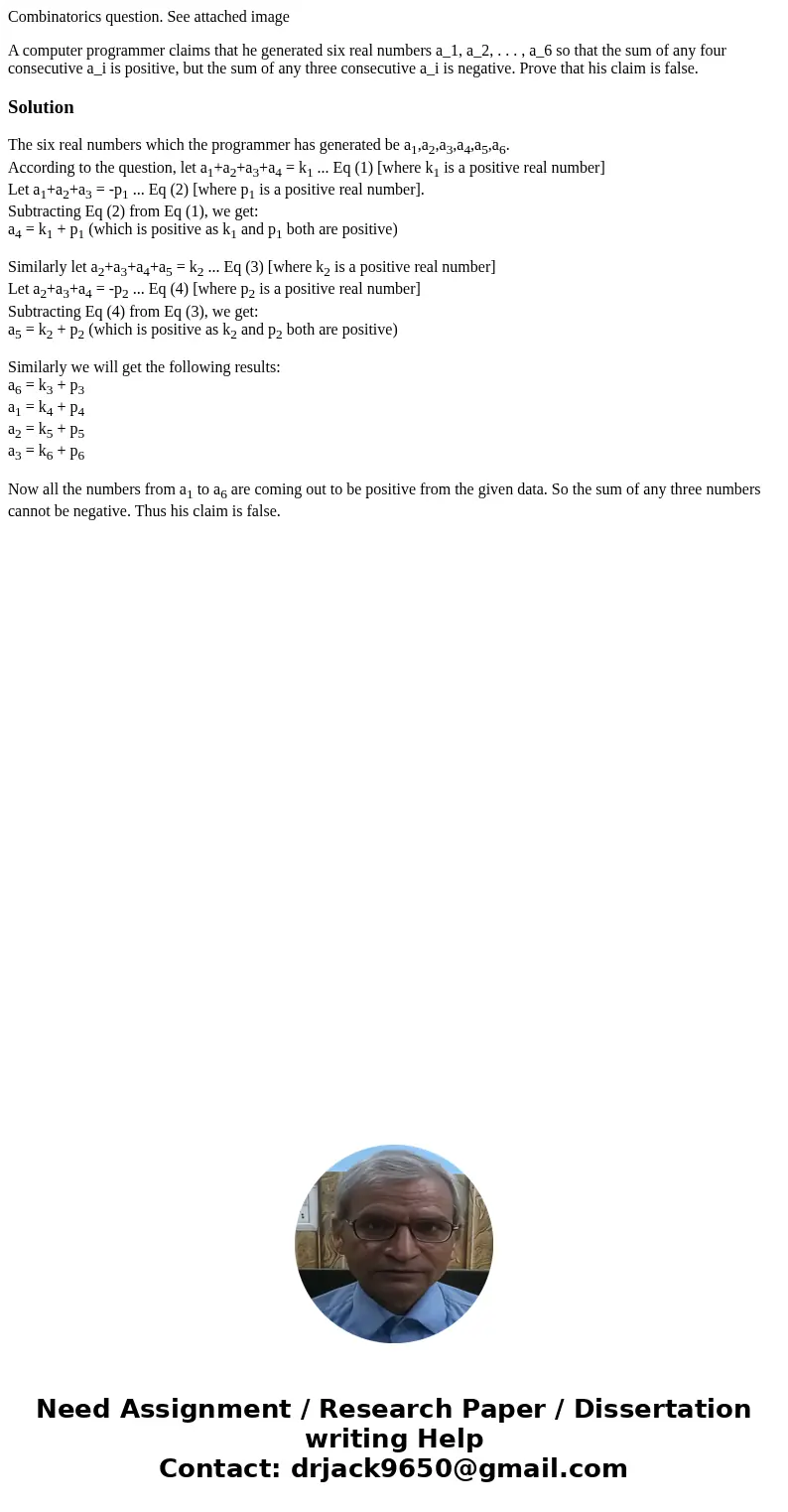Combinatorics question See attached image A computer program
Combinatorics question. See attached image
A computer programmer claims that he generated six real numbers a_1, a_2, . . . , a_6 so that the sum of any four consecutive a_i is positive, but the sum of any three consecutive a_i is negative. Prove that his claim is false.Solution
The six real numbers which the programmer has generated be a1,a2,a3,a4,a5,a6.
According to the question, let a1+a2+a3+a4 = k1 ... Eq (1) [where k1 is a positive real number]
Let a1+a2+a3 = -p1 ... Eq (2) [where p1 is a positive real number].
Subtracting Eq (2) from Eq (1), we get:
a4 = k1 + p1 (which is positive as k1 and p1 both are positive)
Similarly let a2+a3+a4+a5 = k2 ... Eq (3) [where k2 is a positive real number]
Let a2+a3+a4 = -p2 ... Eq (4) [where p2 is a positive real number]
Subtracting Eq (4) from Eq (3), we get:
a5 = k2 + p2 (which is positive as k2 and p2 both are positive)
Similarly we will get the following results:
a6 = k3 + p3
a1 = k4 + p4
a2 = k5 + p5
a3 = k6 + p6
Now all the numbers from a1 to a6 are coming out to be positive from the given data. So the sum of any three numbers cannot be negative. Thus his claim is false.

 Homework Sourse
Homework Sourse